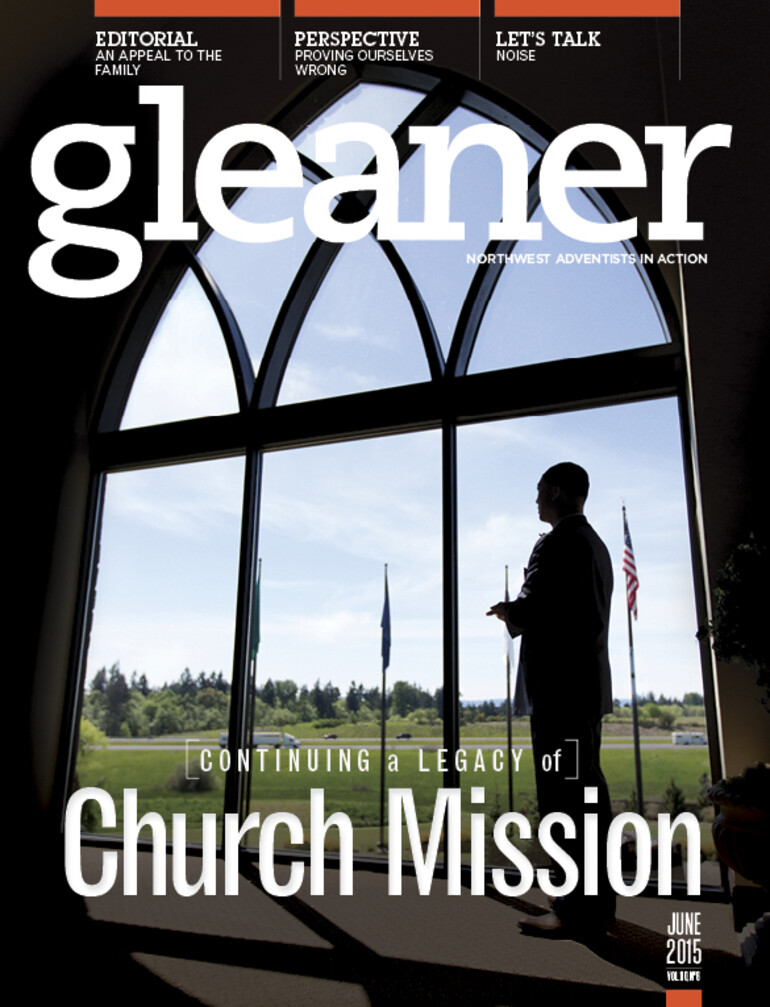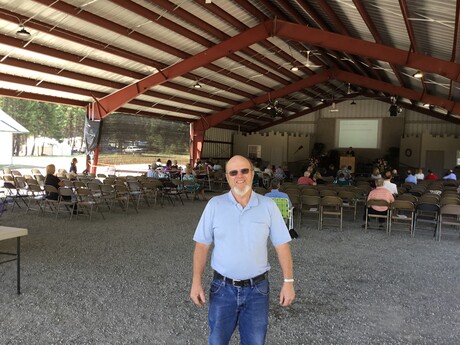Ever grown a vegetable garden without weeds? It’s never happened, for those noxious tares are a reality in our fallen world.
Jesus understood how eager we gardeners are to be rid of those noxious weeds. In fact, He realized how we’d all rather be picking tomatoes than pulling weeds, and so He told us a story with a lesson we never expected or should never forget. He also created a surprising conclusion that is especially important for the church today.
You know the familiar story about the wheat and the tares in Matthew 13. You also know the Master instructed His servants, “Let the rich wheat and the annoying tares grow together until the harvest.”
The Savior's reasoning seems logical when you think about it, but all too often in our passion for purity in the body of Christ, we disregard the essence of His counsel in this important parable. In their zeal, so many well-intentioned servants, as noted in His parable, exclaim, “Master, let us help you! We really want to protect and keep the church pure and its standards high. There are tares in the church, and they are polluting the field. Master! We see the damage these tares can do to the body on Earth. Let us ferret them out! The church will be purer and stronger!”
Jesus was very clear on whose responsibility it was to take care of the church. “Don’t touch the tares,” He explained. “For you will damage and destroy some of the rich wheat in the process.” Jesus was essentially stating, “I understand your concern, but I can’t afford to have you mess with my crop; you do not have the wisdom and discernment to do so without damaging my faithful followers.”
The enemy of all that is good understands that planting the tares is not the final goal. His ultimate hope is to irreparably damage the wheat. And here’s the chilling, diabolical, part of his plan: He can most effectively destroy the good crop by using the very hands tasked with nurturing the wheat. The application is not too hard to see from Jesus’ parable. If they disregard the clear instructions of the master, the saints themselves are in danger of being agents of the devil in destroying the church.
I imagine the targeted Pharisees stood aghast at the parable, for they believe they were the guardians of the purity of the kingdom of God on Earth. They are the self-appointed servants of the Most High, called to root out the tares and purify the church, but Jesus is calling them agents of the evil one. They were doing the work the enemy had outlined for them.
Has someone sent you emails lately about the insidious inroads of spiritual formation, Eastern meditation or contemplative prayer? These appear to be the latest in a hit list of “tares” some strong voices are claiming should be rooted out wherever they are suspected. They are pointing out possible tares in our churches, in our institutions of higher learning, and even in our pastors and administration. In my studied opinion as a longtime pastor and administrator, these books, videos and suspicions are no less than a spiritual witch hunt, intent on rooting out the perceived tares Jesus spoke against in His parable.
And here’s the irony: The real truth is that as a people, we have a far greater problem with a complete lack of any kind of biblical study, meditation and intercessory prayer than we do a perversion of it. Statistics clearly show that our problem isn’t perversion of prayer; it’s no prayer at all. We have fewer issues with spiritual formation than we do with a complete neglect of personal spiritual growth. Some of us are so busy reading about and looking for tares, we are missing the wonderful walk of faith with our Lord that, in itself, would be the transformative power our lives truly needs.
My Christian friend, don’t stoop to this level. Don’t leave the glorious biblical truths presented by our Savior to seek out the smell of pollution you think may be dragging down the church. If you allow yourself to be caught up in these accusations, there will gradually be an imperceptible change in your thinking. You will lose sight of the lofty principles of the kingdom of heaven and become preoccupied with the tares the devil brings into the rich harvest. Kindness will be replaced with judgementalism, empathy with a hardness of heart, caring with gossip and a positive outlook on others with a deepening level of cynicism. Don’t go there. Don’t allow yourself to be drawn into a critical spirit about other leaders or about people in our church, for you will be sucked into a whirlpool of pessimism and suspicion. Rise above such drivel and fix your minds on the beauty of our Savior’s message. Let God be God of His own church. He will watch over it and protect it. It is not going to pieces; it is alive and growing and ripening with rich harvest of salvation.
“Finally, brethren, whatsoever things are true, whatsoever things are honest, whatsoever things are just, whatsoever things are pure, whatsoever things are lovely, whatsoever things are of good report; if there be any virtue, and if there be any praise, think on these things” (Phil. 4:8, emphasis supplied).
Editor's Note: As space allows, the Gleaner provides the You Said It section for Northwest Adventist members to share their personal testimonies or inspirational thoughts. The views expressed are those of the writer and may not fully reflect those of the North Pacific Union Conference or its leadership. We welcome submissions of 500–900 words for You Said It.











